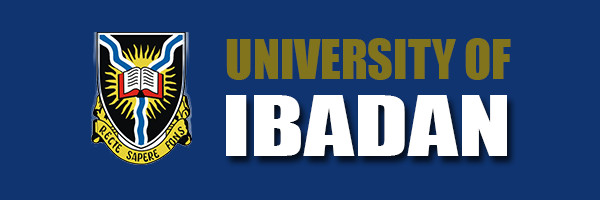INSTITUTE OF EDUCATION 4TH INTERNATIONAL CONFERENCE COMMUNIQUE
INTRODUCTION
The Institute of Education, University of Ibadan, Nigeria held her 4th International Conference in First Bank Hall, Faculty of Agriculture and Forestry, University of Ibadan, Nigeria from Monday, 20 to Wednesday, June 22, 2016.
The theme of the conference was: EDUCATIONAL CHALLENGES IN THE CONTEMPORARY WORLD.
The Vice Chancellor Prof. Abel Idowu Olayinka, FAS who was ably represented by the Deputy Vice Chancellor (Academics), Professor Gbemisola Oke, declared the conference open. Dignitaries at the Opening Ceremony included Prof. E. Adenike Emeke, Director Institute of Education University of Ibadan; Professor M. T. Joshua, the Executive Secretary NCCE, Abuja who was the Keynote Speaker; Professor Stella Y. Erinosho, Former Director Institute of Education. Olabisi Onabanjo University, Ago-Iwoye, Ogun State (the lead paper presenter), Emeritus Professor PAI Obanya, Professor T. W. Yoloye, Professor C. O. Onocha and Professor J.A. Ademokoya of the Faculty of Education among others.
The Director welcomed the partipants and everyone to the Conference, while the DVC (Academics) made the opening remarks as well as declared the conference open on behalf of the Vice chancellor. The keynote speaker gave his insightful and stimulating address on the theme. The lead paper which was very articulately presented on the theme was equally very educative. These were followed by very vibrant discussions on the two papers by participants.
The participants held three sessions of round table discussion on the following issues: GOVERNMENT PRONOUNCEMENT ON CANCELLATION OF POST- UTME; FREE SCHOOL FEEDING, and RECRUITMENT OF 500.000 UNEMPLOYMENT GRADUATES AS SCHOOL TEACHERS. We, the participants at the aforementioned Conference, deliberated on these issues, made the following observations and submissions:
Observations
In Nigeria, we often take government pronouncements on educational and others issues as policies even though they were never articulated the way policies are done. These pronouncements are also not stakeholders-driven and as such most pronouncements fail or do not usually stand the test of time.
For instance, the pronouncement that 500,000 graduates would be employed was not stakeholders-driven and was silent on their professional background of the graduates as teachers. This is against the backdrop that there has been constant outcry on the declining quality of education provided at all levels. Therefore, employing graduates who are not professionally qualified teachers to go and teach in our schools will further lead to more decline of quality in the education sector.
Overall, the Conference made the following observations with respect to the pronouncements on free school feeding, recruitment of unemployed graduates as teachers without regard to their professional background, and unilateral cancellation of post-UTME.
- Cancellation of Post-UTME
- Both UTME and Post-UTME are necessary for quality assurance in the Nigerian tertiary education sub-sector;
- However, the universities appear to have been charging exorbitant post-UTME fees;
- Free school feeding project
- The modality of implementation of the free school feeding project has not been clearly articulated.
- Government has not adequately given the public proper orientation and sensitization on the project such that the actual stakeholders can easily key into making the project a success as well as sustainable.
- Recruitment of 500,000 unemployed graduates
- The Federal Government pronouncement to reduce graduate unemployment is a laudable one.
- The implementation of this pronouncement would have dire consequence on the quality of teaching and as such on the quality of education in Nigeria generally.
- The modalities for the recruitment of these graduates are not clear.
- Many schools lack requisite infrastructural facilities that would aid effective teaching and learning.
RECOMMENDATIONS
In the light of the foregoing observations, the Conference hereby recommends that:
- Both UTME and Post-UTME should be retained for continued quality assurance and avoidance of duplication in admission into tertiary educational institutions.
- Government should centrally regulate and impose modest post-UTME fees on tertiary educational institutions across the country.
- The school feeding project should be community-and school-driven.
- Stakeholders’ forum should be held across the nation in order to create a sense of ownership among the various stakeholders.
- The dignity and prestige of the teaching profession must be restored and sustained.
- The modalities for the recruitment of the 500,000 unemployed graduates should be made clear to the public.
- There should be properly organized training programmes for recruited graduates in order to ensure that they are pedagogically sound and to some extent professionally qualified.
- There should be adequate provision of infrastructural facilities that would aid effective teaching and learning in the schools.
- In the recruitment of the teachers, priority should be given to those with professional education background, while others should be deployed to relevant institutions based on their areas of expertise.
APPRECIATION
The participants hereby express their gratitude to the Vice Chancellor, the two Deputy Vice Chancellors, and the Director of the Institute, the Keynote Speaker, the Lead Paper Presenter and all the participants who made the Conference a success. We also express our profound gratitude to the Local Organizing Committee led by Professor Folajogun V. Falaye.
Professor Adenike Emeke Professor Folajogun V. Falaye
Director, Institute of Education Chairperson, LOC
